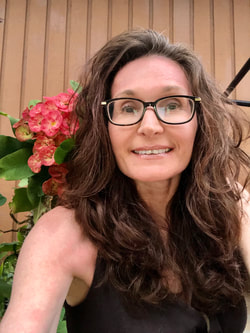|
No one gets through life without being hurt by another person. We all have experienced the pain of a thoughtless remark, gossip, or lie. If you have experienced an unhappy marriage, the devastation of infidelity, or suffered physical or emotional abuse, you know what it feels like to be hurt. It is tempting to hold on to these feelings and build a wall of safety around yourself, but the best way to heal is to forgive the person who hurt you. I love this quote perhaps because it speaks to the process of forgiveness. “We come to love not by finding a perfect person, but by learning to see an imperfect person perfectly.” - Sam Keen, from To Love and Be Loved
What Is Forgiveness? When you forgive another person, you no longer allow their behavior to cause you anger, pain, bitterness, or resentment. When you choose not to forgive, you make the choice to hold on to your feelings of resentment, anger, and pain. Why Should I Forgive? Think of forgiveness as a gift that you give to yourself. It is not something you do for the person who hurt you. It is a gift to yourself because it enables you to stop feeling painful feelings and pushing others away. Forgiveness frees you from anger and allows you to restore your ability to have close and satisfying relationships with others. Anger is a poisonous emotion that comes from being hurt. When you are consumed with anger and bitterness, it hurts you at least as much as it hurts the person who has harmed you. It is as if you are filled with poison. If these feelings are not resolved, they can begin to eat you up inside. You have two choices: to stay connected to the person who hurt you by keeping these poisonous feelings alive, or to let the feelings go and forgive the person who harmed you. When you withhold forgiveness, think about who is actually being hurt. It is more than likely that the person who is filled with anger and anxiety is you, not the other person. What Forgiveness Is Not Forgiving another does not mean you will never again feel the pain or remember the thing that hurt you. The hurtful experience will be in your memory forever. By forgiving, you are not pretending the hurtful behavior never happened. It did happen. The important thing is to learn from it while letting go of the painful feelings. Forgiveness is not about right or wrong. It doesn’t mean that the person’s behavior was okay. You are not excusing their behavior or giving permission for the behavior to be repeated or continued. When you forgive another, it does not mean you wish to continue your relationship with them. This is a separate decision. You can forgive a person and live your life apart from them. Forgiveness can only take place because we have the ability to make choices. This ability is a gift that we can use it whenever we wish. We have the choice to forgive or not to forgive. No other person can force us to do either. The subject of apologies has been coming up in sessions lately. What I have been discussing with others is what makes up a true and genuine apology. How does one truly say I am sorry? What kind of apology makes an actual relationship repair? How does one acknowledge wrong doing without getting defensive? And what if the other person did something hurtful, too? In Emotionally Focused Therapy we address injuries using something called the Attachment Injury Repair Model. Dr. Gannon and Dr. Jinich discuss this model and how to apply it in ours lives on the podcast developed by Hitched. Grab a cup of coffee and click here to enjoy an informative show. To read more about how to forgive click here.
|
Evelyn Schmechtig CochranCategories
All
Archives
February 2024
|

















